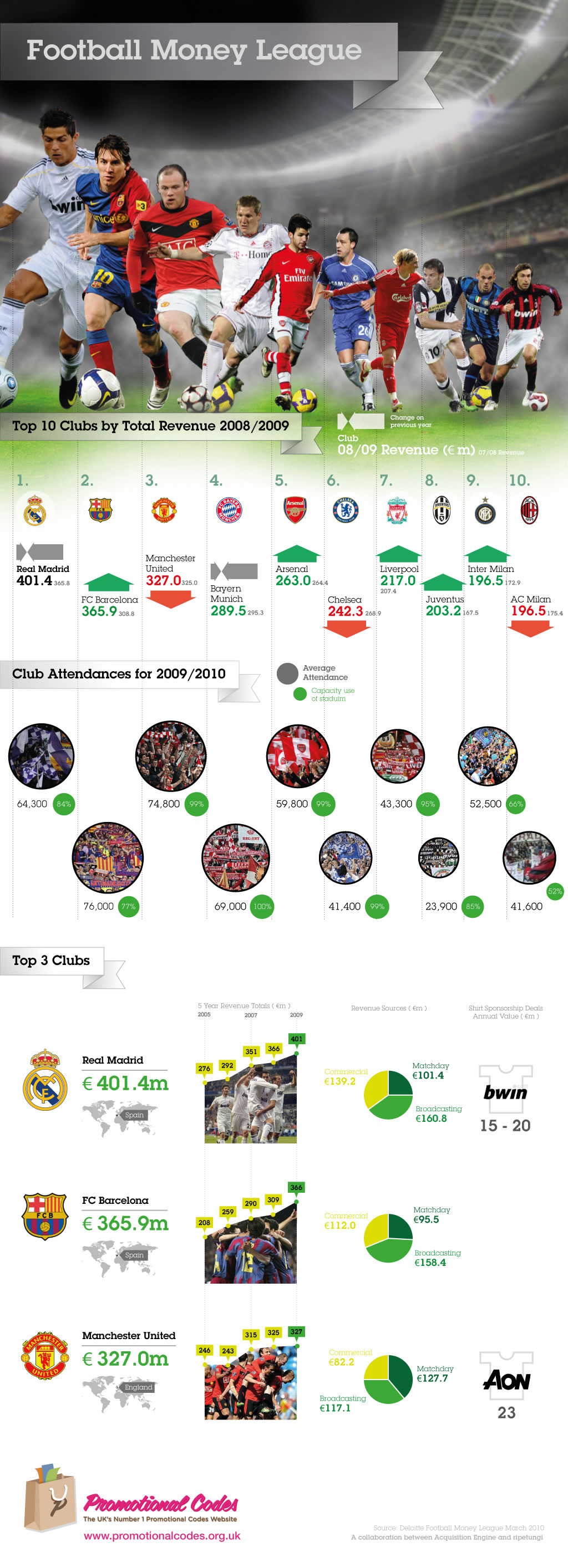The Barcelona School of Management
Please note that we are not authorised to provide any investment advice. The content on this page is for information purposes only.
Is Barça the best club soccer team the world has ever seen?
Is it better than the Santos of the 1960s (which was home to Pelé)? Or the AC Milan of the 1990s?
After beating Real Madrid to the La Liga title, and their trilling 3-1 win against Manchester United in the 2010-11 Champions League final, in which even their opponents had to describe them and their star player, Footballer of the Year Messi, as ‘mesmerising’, many would say yes.
Barça is also a cash machine.
Is Barça the best club soccer team the world has ever seen?
Is it better than the Santos of the 1960s (which was home to Pelé)? Or the AC Milan of the 1990s?
After beating Real Madrid to the La Liga title, and their trilling 3-1 win against Manchester United in the 2010-11 Champions League final, in which even their opponents had to describe them and their star player, Footballer of the Year Messi, as ‘mesmerising’, many would say yes.
Barça is also a cash machine.
Infographic source: Promotional Code
It is number two in Deloitte’s league of the world’s highest-grossing football clubs, behind Real Madrid; with revenues of €398m ($488m) in 2009-10 (Real Madrid earned €439m). It has doubled its revenues over the past four years.
Last year Barça signed a five-year sponsorship deal with Qatar Sports Investment for a minimum of €165m, which would involve putting a commercial logo on the team’s shirts for the first time.
Barça and Real also have an advantage in that they receive a hugely disproportionate share of the revenues from televising La Liga, the Spanish premier league.
How has a club that is based in one of Europe’s unemployment blackspots turned itself into the ruling power in the world’s most popular sport?
Barça has provided a distinctive solution to some of the most contentious problems in management theory. What is the right balance between stars and the rest of mankind? Should you buy talent or grow your own? How can you harness the enthusiasm of consumers to promote your brand? And how do you combine the advantages of local roots and global reach?
[quote]Barça puts more emphasis than any other major team on growing its own players. Other football teams often resemble the United Nations. Barça, by contrast, is still dominated by local players, and Catalan is often spoken in the dressing room. Eight of the team’s leading players are products of its football school, La Masia.[/quote]It is a boarding school that puts as much emphasis on character-training as on footballing skills. The students are relentlessly instructed in the importance of team spirit, self-sacrifice and perseverance. They are also taught that Barça is “more than a club”: it is the embodiment of Catalan pride that kept the region’s spirit alive during the years when Spain groaned under the fascist Franco regime. Fans regularly sport banners proclaiming that “Catalonia is not Spain”.
Barça has used the idea that it is “more than a club” to cultivate a two-way relationship with its fans. It is owned by its members (socis in Catalan), who now number 150,000, rather than by shareholders or foreign tycoons. The management is answerable to an assembly that consists of 2,500 randomly chosen socis and the 600 most senior members. The club supports many sports other than football and runs a popular museum in Barcelona.
Barça’s management style chimes in with the thinking of two admired theorists. Boris Groysberg, of Harvard Business School, has warned that companies are too obsessed with hiring stars rather than developing teams. He conducted a fascinating study of successful Wall Street analysts who moved from one firm to another. He discovered that company-switching analysts saw an immediate decline in their performance. For all their swagger, it seems that their success depended as much on their co-workers as their innate talents. Jim Collins, the author of “Good to Great”, argues that the secret of long-term corporate success lies in cultivating a distinctive set of values.
For all the talk of diversity and globalisation, this usually means promoting from within and putting down deep local roots.
Read the full article from The Economist.





